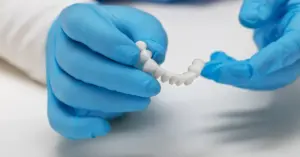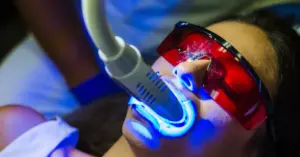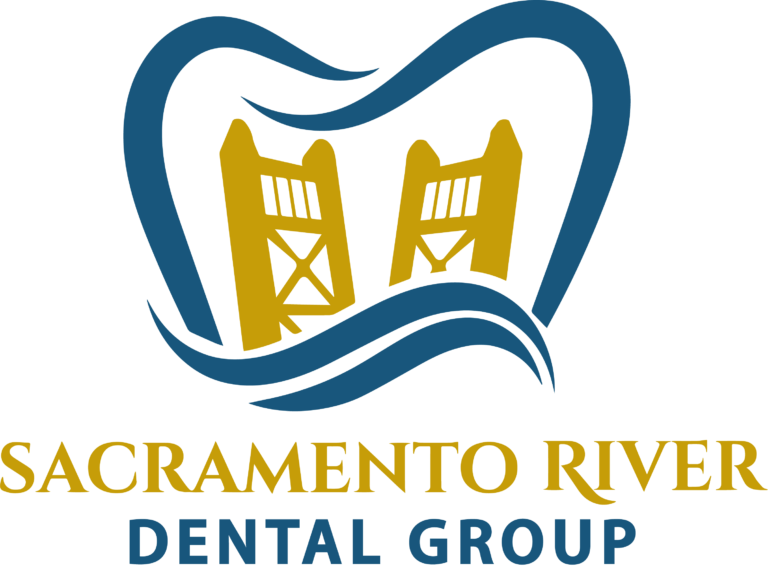Exploring Dental Procedures: Your Guide to Oral Health
Welcome to our journey through dental health, where we’ll unravel the mysteries behind ten common dental procedures. From routine dental services to more complex treatments, understanding these dental procedures is vital to maintaining a healthy smile. Let’s delve into dental care and demystify these essential treatments.
Dental Cleanings and Exams: Foundations of Easy Dental Care

Routine dental cleanings and exams are fundamental aspects of dental care. These services typically occur every six months and involve thorough teeth cleaning by a dental hygienist, followed by an examination by your dentist. During the cleaning, plaque and tartar are removed from your teeth, helping to prevent cavities and gum disease. The exam allows the dentist to assess your overall oral health, check for signs of decay or other dental issues, and discuss any concerns you may have.
Fillings: Repairing Cavities and Preserving Teeth
Dental fillings are a standard treatment for cavities, which are areas of decay on the surface of your teeth. During this dental treatment, the dentist removes the decayed portion of the tooth and fills the space with a filling material to restore its shape and function. The most common types of filling materials include amalgam (a mixture of metals) and composite resin (a tooth-colored material). By addressing cavities with fillings, you can prevent further decay and preserve the affected teeth.
Root Canals: Saving Teeth with Advanced Dental Treatments
Root canal therapy, often called a root canal, is a dental procedure used to treat an infection or damage deep within the tooth’s pulp (the innermost part of the tooth). When the pulp becomes infected or inflamed, it can cause severe pain and may lead to tooth loss if left untreated. During a root canal, the dentist removes the infected or damaged pulp, cleans and disinfects the inside of the tooth, and then fills and seals it with gutta-percha. Despite its reputation, root canal therapy is a highly effective way to save a tooth and relieve pain.
Extractions: Removing Troublesome Teeth
Tooth extraction removes a tooth from its socket in the jawbone. This dental procedure may be necessary for several reasons, including severe decay, advanced gum disease, crowding, or trauma. Before performing an extraction, the dentist will numb the area with a local anesthetic to ensure you feel little to no pain during the procedure. After removing the tooth, the dentist may provide instructions for post-extraction care, such as avoiding certain foods and taking pain medication as needed.
Dental Crowns: Restoring Strength and Function

A dental crown, also known as a cap, is a tooth-shaped covering placed over a damaged or weakened tooth to restore its strength, shape, and appearance. This treatment is often recommended for teeth that have undergone root canal therapy, have large fillings, or are significantly worn down. Dental crowns can be made from various materials, including porcelain, metal, or a combination of both, depending on the tooth’s location and your aesthetic preferences.
Dental Bridges: Filling Gaps in Your Smile
A dental bridge is a fixed dental restoration that replaces one or more missing teeth by bridging the gap between adjacent teeth. This dental treatment consists of one or more artificial teeth, called pontics, anchored by dental crowns attached to the neighboring teeth. Dental bridges not only improve the appearance of your smile but also help restore proper chewing and speaking abilities and prevent the remaining teeth from shifting out of position.
Dental Implants: Permanent Solutions for Tooth Loss
Dental implants are titanium posts surgically placed into the jawbone beneath the gum line to serve as artificial tooth roots. This dental treatment provides a strong foundation for replacement teeth that look, feel, and function like natural teeth, such as crowns, bridges, or dentures. Dental implants offer numerous benefits, including improved chewing ability, enhanced speech, and increased comfort and confidence when smiling and speaking.
Orthodontic Treatments: Straightening Smiles with Precision
Orthodontic treatments are designed to correct misaligned teeth and bite issues, improving your smile’s appearance and function. Traditional braces consist of metal brackets and wires that gradually move the teeth into the desired position over time. In contrast, clear aligners like Invisalign® are custom-made plastic trays that fit snugly over the teeth and exert gentle pressure to shift them into alignment. Orthodontic treatments enhance your smile’s aesthetics and promote better oral health by making it easier to clean and maintain your teeth.
Gum Disease Treatments: Preserving Gum Health
Gum disease, or periodontal disease, is an infection of the gums and bones that support the teeth, often caused by poor oral hygiene habits, tobacco use, genetics, or certain medical conditions. Common symptoms of gum disease include red, swollen, or bleeding gums; persistent bad breath; and loose or shifting teeth. Gum disease treatments aim to remove the bacteria and plaque buildup contributing to gum inflammation and infection, restore gum health, and prevent further damage to the gums and supporting structures.
Teeth Whitening: Brightening Smiles Safely
 Teeth whitening is a popular cosmetic dental treatment that effectively lightens stains and discoloration caused by aging, tobacco use, certain foods and beverages, or medications. This procedure can be performed in-office by a dentist or at home using custom-fitted trays and professional-grade whitening gel. While over-the-counter whitening products are also available, professional teeth whitening treatments offer superior results and safety under the supervision of a dental professional.
Teeth whitening is a popular cosmetic dental treatment that effectively lightens stains and discoloration caused by aging, tobacco use, certain foods and beverages, or medications. This procedure can be performed in-office by a dentist or at home using custom-fitted trays and professional-grade whitening gel. While over-the-counter whitening products are also available, professional teeth whitening treatments offer superior results and safety under the supervision of a dental professional.
Conclusion
We’ve explored ten common dental procedures for maintaining optimal oral health and achieving a beautiful smile. Whether you’re due for a routine dental cleaning and exam or considering more complex dental treatments like root canals or dental implants, understanding these procedures is vital to making informed decisions about your dental care. Remember to prioritize regular visits to your dentist for preventive care and address any dental concerns promptly to preserve your smile for years to come. Here’s to a healthier, happier you!
References:
- American Dental Association. (n.d.). Dental Procedures.
- Mayo Clinic. (2022). Root canal.
- American Association of Oral and Maxillofacial Surgeons. (n.d.). Tooth Extractions.
- WebMD. (2022). Dental Crowns. https://www.webmd.com/oral-health/guide/dental-crowns
- Colgate. (n.d.). Dental Bridges.
- American Academy of Periodontology. (n.d.). Types of Gum Disease Treatment. https://www.perio.org/consumer/types-gum-disease.html
- American Dental Association. (n.d.). Tooth Whitening Treatments. https://www.ada.org/en/member-center/oral-health-topics/whitening
FAQs Section
1. What dental procedures are covered by medical insurance?
Dental procedures covered by medical insurance can vary depending on the specific insurance plan and provider. Generally, medical insurance may cover specific dental procedures deemed medically necessary rather than purely cosmetic. Commonly covered dental procedures may include emergency dental care for issues like toothaches or injuries, diagnostic services such as X-rays, and treatments for dental conditions that affect overall health, such as infections, or oral surgery procedures like tooth extractions or biopsies.
However, routine dental care, such as cleanings, fillings, and orthodontic treatments, is typically not covered by medical insurance and requires separate dental insurance coverage or out-of-pocket payments.
2. What dental procedures does the VA cover?
The dental procedures covered by the Department of Veterans Affairs (VA) can vary depending on a veteran’s eligibility status, service-connected disabilities, and other factors. Generally, the VA provides dental benefits to certain eligible veterans through its Veterans Health Administration (VHA) dental program. Covered dental services for eligible veterans may include diagnostic and preventive care (e.g., cleanings, exams, X-rays), restorative treatments (e.g., fillings, crowns, extractions), and emergency dental care.
However, the scope of VA dental benefits is limited, and not all veterans qualify for comprehensive dental coverage. Eligibility for VA dental benefits is determined based on factors such as service-connected disabilities, former prisoner of war status, and income level.
3. Who performs the majority of operative dental procedures?
Most operative dental procedures, including routine dental cleanings, fillings, root canals, extractions, and restorative treatments, are performed by licensed dentists. Dentists are trained dental professionals who have completed a doctoral degree in dentistry (D.D.S. or D.M.D.) from an accredited dental school and obtained licensure from their state dental board. General dentists are primary dental care providers who diagnose, treat, and manage overall oral health and perform a wide range of dental procedures.
However, specific specialized dental procedures, such as oral surgery, may be performed by oral surgeons (oral and maxillofacial surgeons) who have completed additional training in surgical procedures related to the mouth, jaw, and face. Additionally, dental hygienists may perform specific non-surgical dental procedures, such as dental cleanings and oral hygiene education, under the supervision of a licensed dentist.
Experience Personalized, Top-Notch Dental Care at Sacramento River Dental Group

Looking to elevate your oral health to new heights? Look no further than Sacramento River Dental Group in Sacramento, CA. Our team of seasoned professional dental doctors is dedicated to providing exceptional care tailored to your unique needs. From routine cleanings to advanced treatments, we offer comprehensive services to brighten your smile. Don’t wait any longer – schedule your appointment with us today and experience the difference that personalized, top-notch dental care can make in your life. Your smile deserves the best, and we’re here to deliver it at Sacramento River Dental Group.


